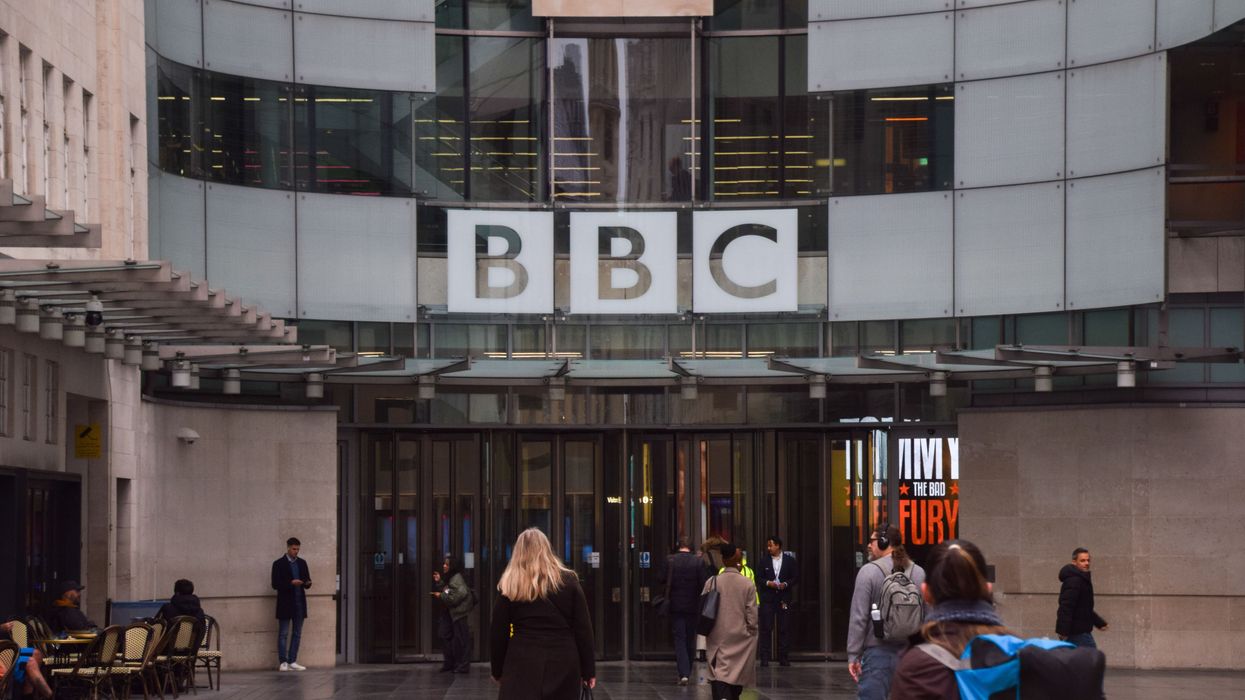
The BBC in the United Kingdom is the latest target of US President Donald Trump’s attempts to root out all unflattering portrayals of him from media coverage, with the president citing a memo penned by a former BBC adviser reported to have ties to the British Conservative Party.
Trump wrote to the BBC Monday, warning that he would file a lawsuit demanding $1 billion in damages unless the publicly funded broadcaster retracts a documentary film about him from last year, issues a formal apology, and pays him an amount that would “appropriately compensate President Trump for the harm caused.”
The president gave the network until Friday to act in regard to Trump’s complaint about a section of the film Trump: A Second Chance? by the long-running current affairs series Panorama.
The film was broadcast days before the 2024 US election, and included excerpts from the speech Trump gave to his supporters on January 6, 2021 just before thousands of them proceeded to the US Capitol to try to stop the election results from being certified.
It spliced together three quotes from two sections of the speech that were made about 50 minutes apart, making it appear that Trump urged supporters to march with him to the Capitol and called for violence.
“We’re going to walk down to the Capitol… and I’ll be there with you… and we fight. We fight like hell,” Trump is shown saying in the edited footage.
In the unedited quote, Trump said, "We’re going to walk down to the Capitol, and we’re going to cheer on our brave senators and congressmen and women, and we’re probably not going to be cheering so much for some of them.”
BBC chairman Samir Shah said the network’s standards committee had discussed the editing of the clips earlier this year and had expressed concerns to the Panorama team. The film is no longer available online at the BBC’s website.
“The furor over the Trump documentary is not about journalistic integrity. It’s a power play… It’s a war over words, where the vocabulary of journalism itself is weaponized.”
“We accept that the way the speech was edited did give the impression of a direct call for violent action," said Shah. "The BBC would like to apologize for that error of judgment.”
Two top executives, director general Tim Davie and head of news Deborah Turness, also resigned on Sunday under pressure over the documentary.
The uproar comes days after the right-wing Daily Telegraph published details from a memo by former BBC standards committee adviser Michael Prescott, “managing director at PR agency Hanover Communications, whose staff have gone on to work for the Conservative Party,” according to Novara Media.
Prescott’s memo took aim at the documentary as well as what he claimed was a pro-transgender bias in BBC news coverage and an anti-Israel bias in stories by the BBC’s Arabic service.
According to the Guardian, Robbie Gibb, a member of the BBC board who previously worked as a communications official for former Tory Prime Minister Theresa May, “amplified” the criticisms in Prescott’s memo in key board meetings ahead of Davie’s and Turness’ resignations.
Deadline reported Monday that “insiders” at the BBC have alleged that Prescott’s memo, the resignations, and Trump’s threat of legal action all stem from a right-wing “coup” attempt at the broadcaster.
Journalists including Mehdi Hasan of Zeteo News and Mikey Smith of The Mirror noted that while Panorama’s editing of Trump’s speech could be seen as misleading, the documentary wasn’t responsible for accusations that the president incited violence on January 6, which pre-dated the film.
“To understand how insane it is that the BBC is being accused of ‘making it look like’ Trump was inciting violence with their bad edit, as opposed to Trump actually having incited violence, we know even his own kids that day were desperately trying to get him to call off the mob,” said Hasan.
Others suggested the memo cited in Trump’s letter to the broadcaster should be discredited entirely for its claim that the BBC has exhibited an anti-Israel bias—an allegation, said author and international relations professor Norrie MacQueen, that amounted to “an entirely new level” of George Orwell’s “newspeak.”
While the BBC “has been shaken by one of the smallest of its sins,” wrote media analyst Faisal Hanif at Middle East Eye, “the greater one—its distortion of Palestinian reality—goes unpunished.”
Hanif pointed to a report published in June by the Center for Media Monitoring, which showed that despite Gaza suffering 34 times more casualties than Israel since October 2023, the BBC “gave Israeli deaths 33 times more coverage per fatality and ran almost equal numbers of humanizing victim profiles (279 Palestinians vs. 201 Israelis).”
The network also used “emotive terms four times more for Israeli victims” and shut down allegations that Israel has committed genocide in Gaza, as well as “making zero mention of Israeli leaders’ genocidal statements,” even as Israel faces a genocide case at the International Court of Justice.
“The furor over the Trump documentary is not about journalistic integrity,” wrote Hanif. “It’s a power play: the disciplining of a public broadcaster that still, nominally, answers to the public rather than the billionaire-owned media. It’s a war over words, where the vocabulary of journalism itself is weaponized.”
“The BBC is punished for the wrong things. It loses its leaders over an editing error, while escaping accountability for its editorial failures on Gaza,” Hanif continued. “The Trump documentary might have been misedited, but the story of Gaza has been mistold for far longer. If the BBC still believes in its own motto—‘Nation shall speak peace unto nation’—then peace must begin with honesty.”
From Common Dreams via This RSS Feed.

